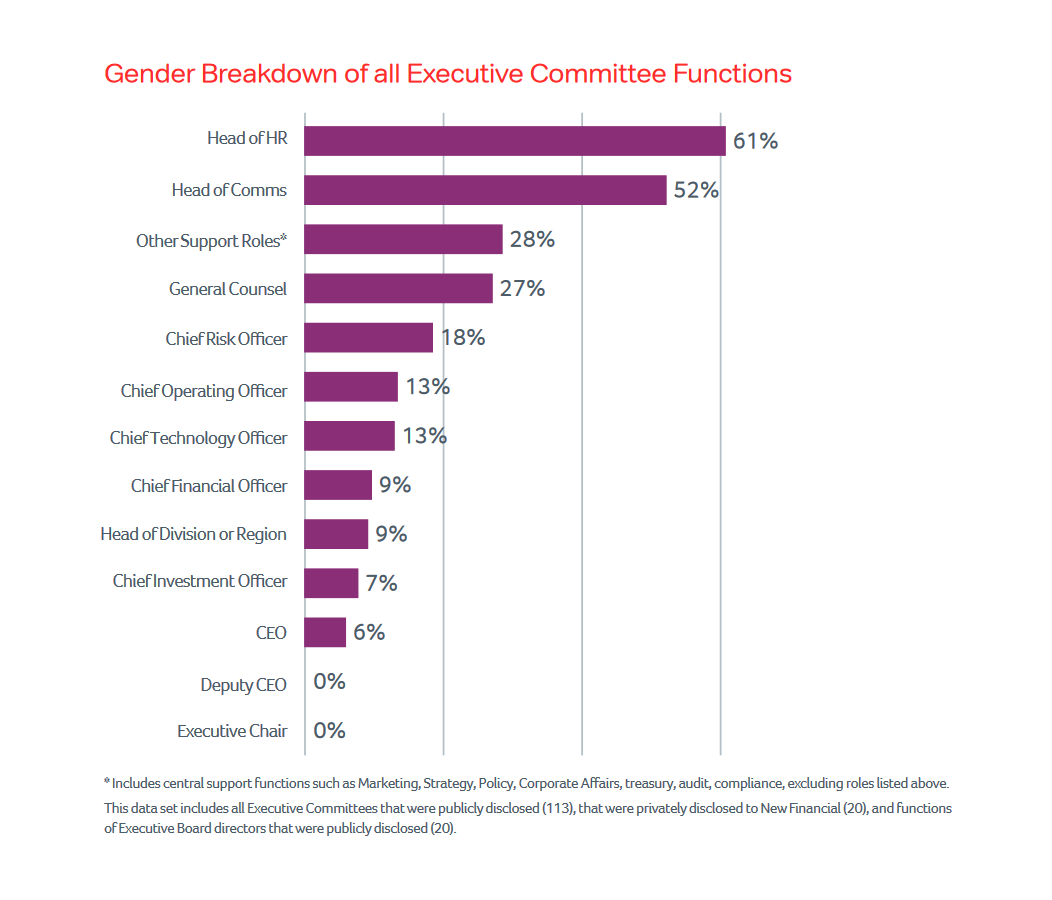Government lambasted for being ‘complicit’ as extent of female workplace inequality revealed
- 9 Min Read
A series of damning reports reveal the extent to which women are penalised within the modern workforce.
- Author: Owain Thomas
- Date published: Mar 23, 2016
- Categories

A series of damning reports reveal the extent to which women are penalised within the modern workforce.
- Government slammed for perpetuating the under-valuation of women in the workforce
- Tie-in of executive bonuses to gender targets launched for financial services industry
- Large majority of pregnant women or new mothers suffer related workplace discrimination
- Gender discrimination claims fallen substantially since introduction of tribunal fees
MPs have strongly criticised the government for continuing the inequality of women in the workforce and said policies must be changed if the disparity is to end.
They blame the government for failing to do enough to close the gender pay gap and to promote equality of roles within society as a whole.
The tough-talking report from the Women and Equalities Select Committee (WESC) was published the same day as one from Virgin Money CEO Jane-Anne Gadhia.
She highlighted concerns about the role of women within the financial services industry and recommended linking gender diversity targets to executive bonuses.
Research from the Equality and Human Rights Commission (EHRC) also found more than three-quarters of pregnant women and new mothers experienced negative and potentially discriminatory treatment at work each year.
Together, the reports reveal the stark statistics of how women are penalised throughout working life and society in general:
- UK GDP suffers by 2% (around £36bn) because many women are trapped in low paid, part-time work below their skill level (WESC)
- Half of mothers described a negative impact on their career, work status or job security, including being ignored for promotion and training or being threatened with dismissal or pressurised to resign (EHRC)
- Only a quarter (28%) of women raised discriminatory treatment with their employer, only 3% went through their employer’s internal grievance procedure, and less than 1% pursued a claim to the employment tribunal (EHRC)
- Substantial falls in the number of sex discrimination cases (down by 76%) and pregnancy-related cases (down by 50%) instigated since the introduction of tribunal fees (EHRC)
- Only 50% of women (compared to 70% of men) believe they have an equal opportunity to advance regardless of their personal characteristics or circumstances with financial services (Gadhia)
- The 23% average figure for female board representation disguises the under-representation of women holding executive directorships (7%) with the proportion of female non-executive directors (27%) (Gadhia)
Trapped in low-paid work
The Women and Equalities Select Committee found that the government was complicit in a system that undermined productivity and perpetuated the gender pay gap.
It said that the key causes of pay differentials were: the part-time pay penalty; women’s disproportionate responsibility for childcare and other forms of unpaid caring; and the concentration of women in highly feminised, low paid sectors like care, retail and cleaning.
As a result, it called for greater support for men and women to share childcare and other forms of unpaid caring more equally, more to support women returning to work if they had time out of the labour market, and more attention on women working in low-paid, highly feminised sectors.
Speaking to HRD Connect at the HR Directors Summit last month, Dame Stephanie Shirley agreed that women did need to be given support back into the workforce after a long absence.
Download the full interview with Dame Stephanie here
Committee chairwoman Maria Miller said: “The gender pay gap is holding back women and that isn’t going to change unless the government changes its policies now.
“The pay gap represents a massive loss to the UK’s economy and we must address it in the face of an ageing workforce, a skills crisis and the need for a more competitive economy.
“If the government is serious about long-term, sustainable growth it must invest in tackling the root causes of the gender pay gap. Adopting our recommendations would be a significant step towards achieving the goal of eliminating the gender pay gap within a generation,” she added.
The committee noted there was scope for optimism as the report found attitudes to work and caring were changing. “Employers are increasingly recognising that workplaces need to change and that flexible working benefits men, women and the bottom line. This does not mean part-time work, which is underpaid,” it said.
Link bonuses to break the glass ceiling
The Gadhia report, which was commissioned by HM Treasury, revealed how difficult it was for women to progress within the financial services sector.
As a result of the findings, a new government charter has been designed to improve gender diversity in senior positions in the sector.
This includes linking executive bonuses to gender equality targets.
It also recommended that firms set internal targets for gender diversity in their senior management, publish progress reports annually against these targets, and appoint an executive solely responsible for gender, diversity, and inclusion.
It explained that more women than men began careers in financial services but, as they progressed, the majority fell out, especially at middle management level.
“This leaves almost all of the top jobs in the hands of men. Achieving a balanced workforce at all levels in financial services will undoubtedly improve culture, behaviour, outcomes, profitability and productivity,” it noted.
Of the 200 UK financial services firms sampled, the average was 23% female representation on boards, but only 14% on executive committees.
This, it said, demonstrated that far more progress has been made with respect to the former compared to the latter which may reflect the fact that political and media focus over the last few years had been on the measurement of board composition.
“The 14% figure is surprisingly close to the 12.5% figure, which marked the starting point of Lord Davies’ push to increase the representation of women on Boards. This suggests that there may be a natural floor above which female representation will fail to progress without measurement, scrutiny and action,” the report added.
Pigeonholed
Perhaps unsurprisingly, women who did make it to the top were largely restricted to either HR or communications departments – with fewer than one in ten CFO, CIO and CEO spots being held by women.
Virgin Money CEO Jane-Anne Gadhia said: “Too few women get to the top and this is not just about childcare. Women are leaving because the culture isn’t right. It’s very encouraging that a number of major financial services companies have already agreed to implement our recommendations.
“As a result, the issue will now be addressed in a way the City recognises. Make it public, measure it and report on it. What gets published gets done,” she added.
CBI director for skills and employment Neil Carberry agreed the business and economic case for diversity was clear.
“It’s positive that financial services have agreed an approach for their sector. Voluntary, business led action is needed to foster a culture of gender diversity, not just a fear of compliance. Many companies may choose remuneration policy as one of many tools to make progress. It would be a mistake to pursue a one-sized-fits-all legal approach for all sectors,” he added.
The Association of Accounting Technicians (AAT) said its research echoed findings that there was still more the financial sector needed to do to improve equality between men and women.
AAT chief HR officer Olivia Hill said: “In our survey, 29% of women said that men and women doing the same jobs in their organisation are not paid the same because an old boys’ club mentality still persists, and 33% of women said differences in pay are because the people deciding on salaries are more likely to be men.
“AAT agrees with the report’s recommendation that firms should set diversity targets against which they can measure progress. Doing this would be useful not just for larger firms, but firms of all sizes in the finance sector, who should get systems in place to analyse their pay information and representation at different levels by gender. This will help identify where any problems lie so organisations can tackle them head on,” she added.
Widespread discrimination
Finally, the Equality and Human Rights Commission published wide-ranging proposals to support the 77% women of pregnant women and new mothers who experienced negative and potentially discriminatory treatment at work each year.
This means the equivalent of 390,000 are likely to be affected each year.
The call for action from government prioritises ensuring women have better access to the legal process.
The full proposals are:
- take more effective steps to prevent employers asking during the recruitment process about a woman’s pregnancy or her intention to have children
- explore the feasibility of a collective insurance scheme to support small and medium sized employers to provide enhanced pay and cover for maternity leave (based on a successful model used in Denmark)
- make changes to the employment tribunal fee system to ensure that fees are not a barrier to accessing justice for pregnant women and new mothers
- consider increasing from three to six months the time limit for a woman to bring an employment tribunal case involving pregnancy and maternity discrimination.
Better leadership and management
The EHRC agreed that many employers valued the talent, skills and drive women contributed but that this did not always translate into positive experiences at work for pregnant women and new mothers.
So as a result it was also making a number of recommendations to improve leadership, management practice, information, and health and safety among employers.
These include:
- a joint communications campaign between government, the commission and business leaders to drive attitudinal and behavioural change by promoting the economic benefits of unlocking and retaining the talent of pregnant women and new mothers;
- improving the advice and information available to help employers and employees understand their rights and obligations;
- and improving health and safety management in the workplace so women are not forced to choose between their job and their health or the health of their unborn child.
EHRC deputy chairwoman Caroline Waters said: “We simply cannot ignore the true scale of the hidden discrimination that working mothers face. This is unacceptable in modern Britain, and urgent action is needed to ensure women are able to challenge discrimination and unfairness. This is why we are calling on government to look at the barriers working pregnant women and mothers face in accessing justice.”
Walters added that workplaces should be fairer for everyone and outdated practices ended – such as asking during job interviews whether women intended to have children.
“For businesses to thrive, they need to harness the talents, skills and experience of all employees. We are calling on employers, regulatory bodies and the voluntary sector to make vital changes needed to improve the lived experiences of British workplaces so they are the best they can be for everyone,” she said.









